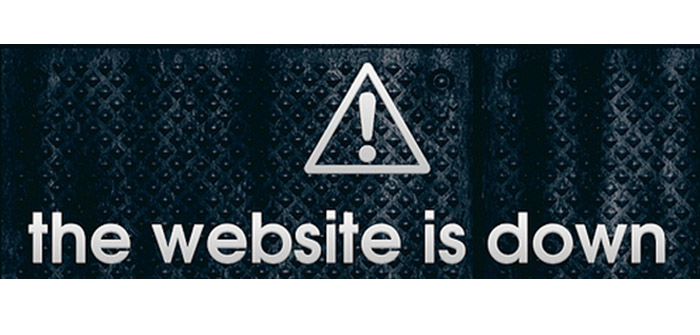Photo above: “website is down” (CC BY 2.0) by Sean MacEntee
If you’re a business with an online presence, what’s the most important thing you have to consider? Is it security? Maybe it’s the layout of your website? What about access points? Is the site available to mobile users?
If you asked those questions or, in fact, anything else, you were right – because it was a bit of a trick question. When you take your business online, there isn’t one single issue that you should be thinking about exclusively over anything else. Yes, there might be some things that you should consider before others, but you need to cover all the bases if you want your website or app to have a positive ROI.
Users Need Access to See Your Hard Work

“Virginia Ballot on Microsoft Surface Pro” (CC BY-SA 2.0) by IntelFreePress
Now, let’s assume you’ve ticked all the right boxes and you’re online. At this point, there is something that becomes hugely important and that’s access. If a user can’t access your site or app, then all the hard work you’ve put in will count for nothing. Not only that, but in today’s business world, “down time” costs money.
A case in point is the mighty Amazon. Despite being the largest online retailer in the world, the company isn’t immune to bugs, hackers and unforeseen glitches that have the ability to take the site offline. Back in 2013, the site went dark for 30 minutes and post-incident analyse calculated that the outage cost Amazon $66,240 a minute. That figure was up from the $31,000 per minute it cost during a similar outage in 2008.
Taking this a step further, when Amazon crashed in 2016, the 20-minute period of inactivity cost the company approximately $3.75 million based on its 2015 annual sales revenue of $98.5 billion. In simple terms, when your site is offline, it costs you money and, in some cases, it costs a great lot of money. Moreover, it damages your reputation. If you can’t provide a reliable online platform, then users won’t trust the site and, therefore, choose not to use it.
Look to the Sky for Answers

“Access to Cloud / Ladder to Heaven” (CC BY 2.0) by FutUndBeidl
So what you can do about it? In a time when cloud servers are making computing more convenient and more efficient, the best way to counteract any unforeseen glitches is to use load balancing and automatic failover protocols. In simple terms, load balancing is the process of distributing workloads across multiple servers in a bid to decrease the load placed on a single resource and, therefore, improve site response times.
However, today’s cloud-based services also use this method to deal with disaster recovery through a process known as automatic site failover. Indeed, as noted by Incapsula, load balancing and automatic site failover allow you to “maintain the highest level of availability” even in disaster recovery scenarios. Essentially, when you use a service capable of load balancing and automatic failover, you’ll be able to maintain a web presence to end users even if the main server to your site goes down.
Through a process of granular health monitoring (i.e. constant checks of the network for potential faults) and auto-alerts, a service provider can implement instant routing changes and, in short, keep you live until you can fix the main error.
Don’t Let Your Business Go Down
 “404 error message something went wrong” (CC BY 2.0) by http://klarititemplateshop.com/
“404 error message something went wrong” (CC BY 2.0) by http://klarititemplateshop.com/
“But surely this technology is only something major corporations can use?”, you may be thinking. In the past, that would have been true. Major businesses would have had in-house systems that shifted traffic from one server to another in the event of a disaster.
However, thanks to cloud computing, small businesses can now delegate this out to a dedicated provider. By using an online load balancing service, you’ll basically be able to connect your platform to the provider’s cloud servers and they’ll do the rest. Given the negative impact a blackout can have on your business, the cost of a service like this shouldn’t be seen as a luxury but as a necessary business expense.
Having a presence online is great, but it’s only beneficial for your business if you can maintain that presence, even in the face of adversity. So, even if you’ve covered security, access points and your mobile presence, don’t forget to implement a site failover so these efforts don’t go to waste.





